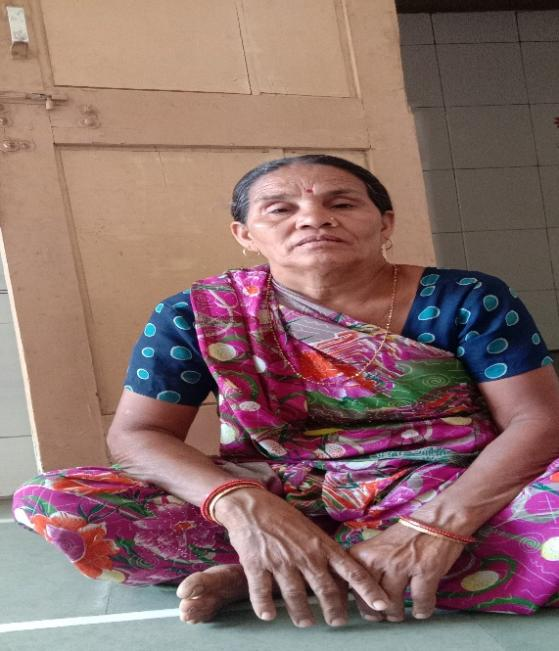Chandrikaben Ajitbhai Patel, a 56-year-old farmer from Sathal village, has been engaged in farming for over 35 years. Though she followed traditional farming methods passed down through generations by her father and grandfathers, her approach changed when she joined the Self Employed Women’s Association (SEWA) a few years ago. SEWA introduced her to sustainable agricultural practices and organized a wheat farming cluster of 100 farmers in her village.
Before joining SEWA, Chandrikaben and other farmers relied on conventional methods, applying urea and DAP fertilizers and using locally sourced seeds. Manure was applied to the fields only once every three years, and wheat crops required up to eight rounds of irrigation. However, after participating in SEWA’s training on sustainable wheat cultivation, Chandrikaben adopted organic practices. She applied farmyard manure (FYM), reduced irrigation cycles from eight to six, and used Jivamrut, an organic bio-fertilizer, to improve soil fertility and crop quality.
One of the key benefits of SEWA’s intervention was access to certified wheat seeds from the Gujarat Seed Corporation. Instead of purchasing seeds from local shops, SEWA arranged bulk procurement for the farmers, reducing costs and eliminating the need for long-distance travel. Additionally, farmers received an INR 400 (USD 4.50) seed subsidy, making the transition more affordable. Chandrikaben now plans to save seeds from this harvest for the next planting season, further reducing future expenses.
These changes have significantly improved productivity. This season, her wheat yield increased to 50 maunds per field, compared to the previous 40–45 maunds. She retained 10 maunds for household consumption and 4 maunds for seeds, while selling 36 maunds at INR 700 (USD 8) per maund, earning INR 15,200 (USD 177) in income.
By joining SEWA’s wheat farming cluster, Chandrikaben has not only enhanced her yield and income but has also adopted sustainable and cost-effective farming methods. The support from APFP-FO4A and SEWA has empowered her to reduce input costs, improve crop quality, and secure a more stable livelihood, proving that collective action and knowledge-sharing can transform small-scale farming.
APFP-FO4A is implemented by the consortium Asian Farmers’ Association for Sustainable Rural Development (AFA) and La Via Campesina (LVC) and funded by the European Union and the International Fund for Agricultural Development (IFAD).




Comments are closed